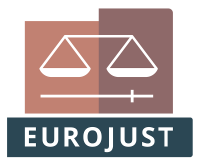Eurojust

Eurojust's mandate is to coordinate cybercrime investigations and prosecutions . As the EU's judicial cooperation unit, it does not organise any training courses in this area. However Eurojust does organise strategic meetings allowing judicial authorities to exchange best practices and discuss legal obstacles. In this regard, as a follow-up to the strategic meeting on cybercrime in Athens held in 2008, Eurojust organised another meeting in November 2014 for practitioners to discuss rising judicial challenges in the field of cybercrime. The main outcomes of that meeting were that cross-border cooperation, a network of specialised prosecutors, and more effective international laws are needed to effectively tackle cybercrime.
As a member of the EU Policy Cycle, Eurojust actively participates in the drafting of EU strategies in the concerned area. Moreover, in relation to cybercrime, Eurojust is an observer to EUCTF and ECTEG as well as a member of the Programme Board of EC3. A Eurojust representative is seconded to EC3 to foster cooperation between both agencies.
Eurojust has had a Memorandum of Understanding with CEPOL since 2009 allowing it to participate in CEPOL residential courses, online modules and webinars . The agency has also signed a Memorandum of Understanding with the European Judicial Training Network (EJTN) in the field of judicial training.
During a dedicated workshop organised within the ECTEG meeting in May 2014, a discussion around judiciaries' issues in cybercrime took place amongst the participants belonging to LE, private sector and academia. There were general topics discussed such as the legal aspects of cross-border cases, the different roles played by prosecutors and judges within the management of investigations, the lack of technical skills required to deal with cybercrime, and the need to have expert witnesses.
For the reasons above, it was proposed to divide the development of education and training programmes into two main pillars:
• High level strategic awareness which should include topics like general education about ‘what the cyber world is', new threats, how the Internet is governed, how to build security and trust in the cyber world, digital forensic concepts, digital rights and responsibilities, and how to approach the international channels to improve cooperation
• Basic training that should impart knowledge on how Internet technologies are conceived, the chain of electronic evidence, the categorisation of cybercrimes, how to present technical cases, how to deal with the criminal compliance process, how to deal with jurisdiction and territoriality.